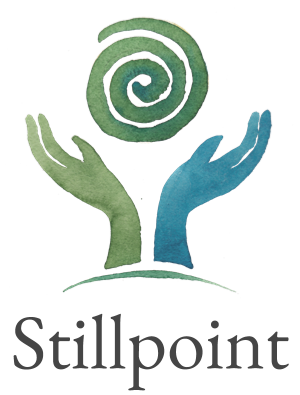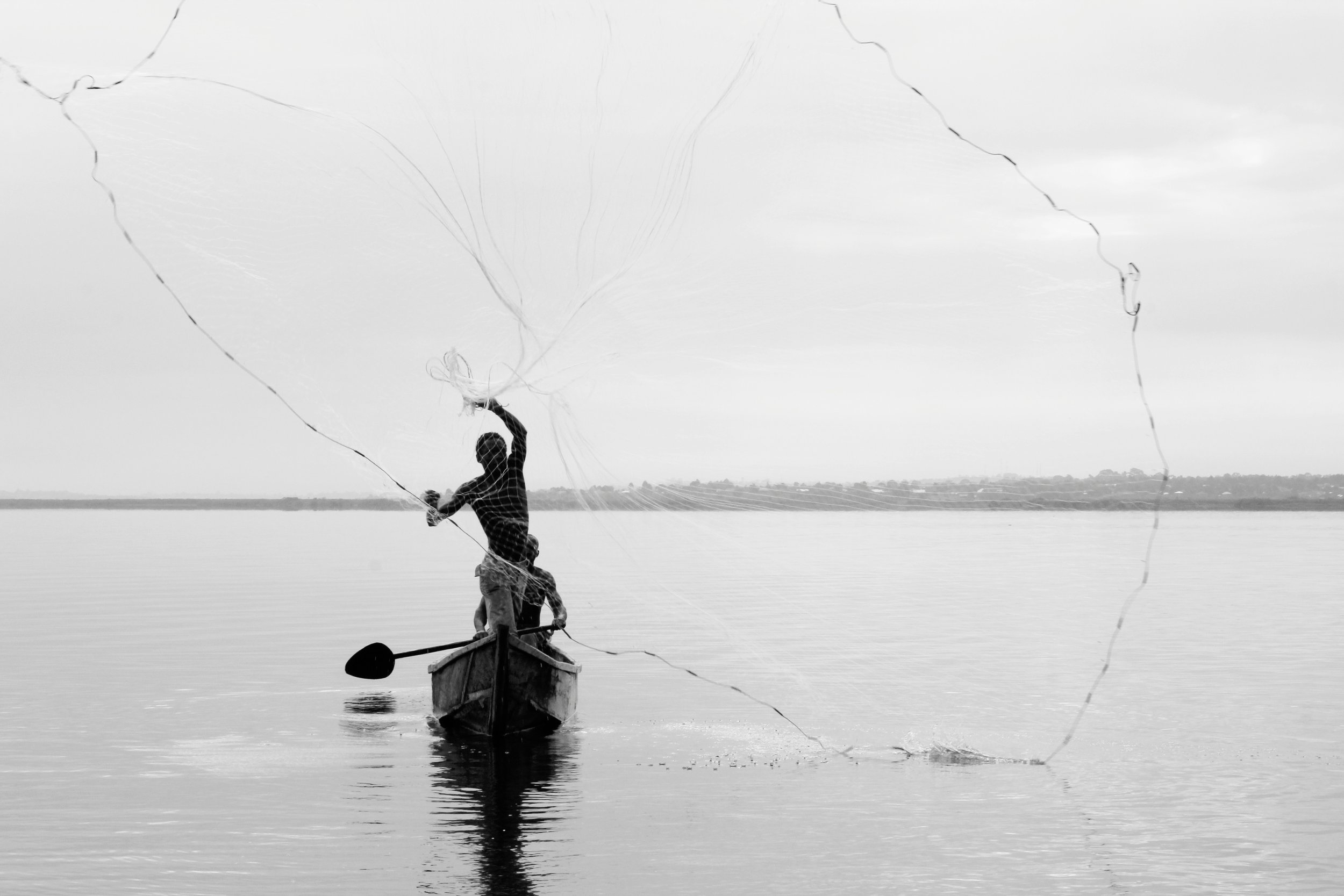Casting Our Nets
By Colleen Thomas
Stillpoint Associate Program Director
April is tax season and my God, I’m thankful it’s over. As a part-time employee, part-time contractor, who is partly self-employed, I receive money from various places for various things I “do” - payments from directees, honorariums for workshops and retreats I facilitate, fees for writing submissions. I can write off expenses for retreats I attend, books I purchase, or enrollment for webinars and courses. Yet when it comes time to answer my accountant, “What’s your occupation?” I’m stumped! What exactly is it that I do?
Recently, some of the faculty were in conversation and encountered stumbling blocks around the idea of naming ‘Spiritual Director’ as an occupation. Many feel it’s more of a vocation. I don’t disagree. I have always loved the idea of vocation - particularly Frederick Buechner’s reflection on vocation (from the Latin vocare) as, “the work a man is called to by God.” Buechner goes on to say, “the place God calls you to is the place where your deep gladness and the world’s deep hunger meet.” And yet for so many, the concept of vocation can feel like a privilege. Most of us are simply just working. I’ve always been a working girl. I had a babysitting business when I was 12 years old and part-time job as a server at a family style diner as soon as I could obtain a work-permit. In high school and college, I remember having a keen interest in those career-finder tests. I loved visiting with academic advisors and took advantage of a variety of internship opportunities. I am always searching for what to do, my passion…my purpose.
Biblical scholars say Jesus was a carpenter, though none of the canonical Gospels speak much if at all to his occupation. We know him essentially through the stories and varied accounts (all of which seem to begin as he transitions to his vocational ministry) to be like unto an itinerant minister with no home, no means of income, as one relying on the kindness of strangers and devotees. Yet the first whom Jesus calls to the vocation of ministry he calls out of their occupation. They were fishermen, and Jesus called them away from that work to a different kind of work - “Come be fishers of men” was the holy invitation.
But he didn’t invite everyone to be fishers of men and give up their known work. Surely the seashore that day was crowded with boats and others making an honest living quite common to coastal communities. So who then, are we to consider, is called to a special vocation? What of those who were left on their boats that day to tend to the ordinary occupation of fisherman? Where is the holy in the every day, common work so familiar to so many of us?
These are important questions to ponder, especially as the spiritual formation landscape is rapidly changing. More and more are responding to the call to become spiritual directors at younger and younger ages. To be a spiritual director is no longer a second stage of life vocation. And these younger called ones will have to consider as I do - “What is my occupation?”
The contemplative landscape is also changing. More and more are responding to the call to be engaged contemplatives, working and serving at the intersections of contemplation and justice, spirituality and activism. To be a contemplative in a climate marked by recurring social, political, and psychological wildfires begs the question - “How am I being called to respond to this need? Jesus, what can I do?” And my sense is that whether fishermen or fishers of men, there is work to be done in our neighborhoods, institutions, faith communities, cities, and suburbs…and all over the global world.
Cynthia Bourgeault says, “Precisely what the contemplative perspective does is that it takes away urgency. That doesn’t mean it takes away importance. One has to act and the timing has to be precise…The purpose of contemplation is to make us responsive and skillful actors at what we must do, not to shield us from action which must happen.”
This is good news for the fishermen. They know the importance of work, patience, and rightly timed action. “Cast your net to the other side,” Jesus tells them in his unrecognized resurrected form. All morning these once again fishermen caught nothing, but when commanded to act, they responded and could barely pull in the net for all the fish.
Oh that all contemplatives would respond with such precision and urgency, and be willing to cast our nets to the other side in such times as these. If only we’d be willing to occupy ourselves so fully with the work of the Kingdom until “justice roll[s] down like waters, and righteousness like an ever-flowing stream” (Amos 5:24).”
If you find yourself like so many contemplatives these days asking, “What am I to do with this awakened heart?”, I invite you to stay tuned for news about enrollment opening for our redesigned Wisdom in Practice Program. We’re calling all fishers of men and fishermen.
Colleen Thomas is a Spiritual Director and Stillpoint's Associate Program Director. A long-time practitioner of Centering Prayer, Colleen leads contemplative prayer groups for the ‘40s and Under’ community and works closely with Contemplative Outreach's diversity outreach initiative. Colleen earned her MA in Theology and Art from Fuller Theological Seminary. She worked in television in Los Angeles for 10 years before relocating to her hometown of Washington D.C. where she continues her spiritual formation and explores her creative passions while enjoying the close companionship of her family. You can discover more about her work and explore her writing at https://soulcarela.com and hear her in conversation about Centering Prayer and the contemplative life on the Opening Minds, Opening Hearts podcast.



